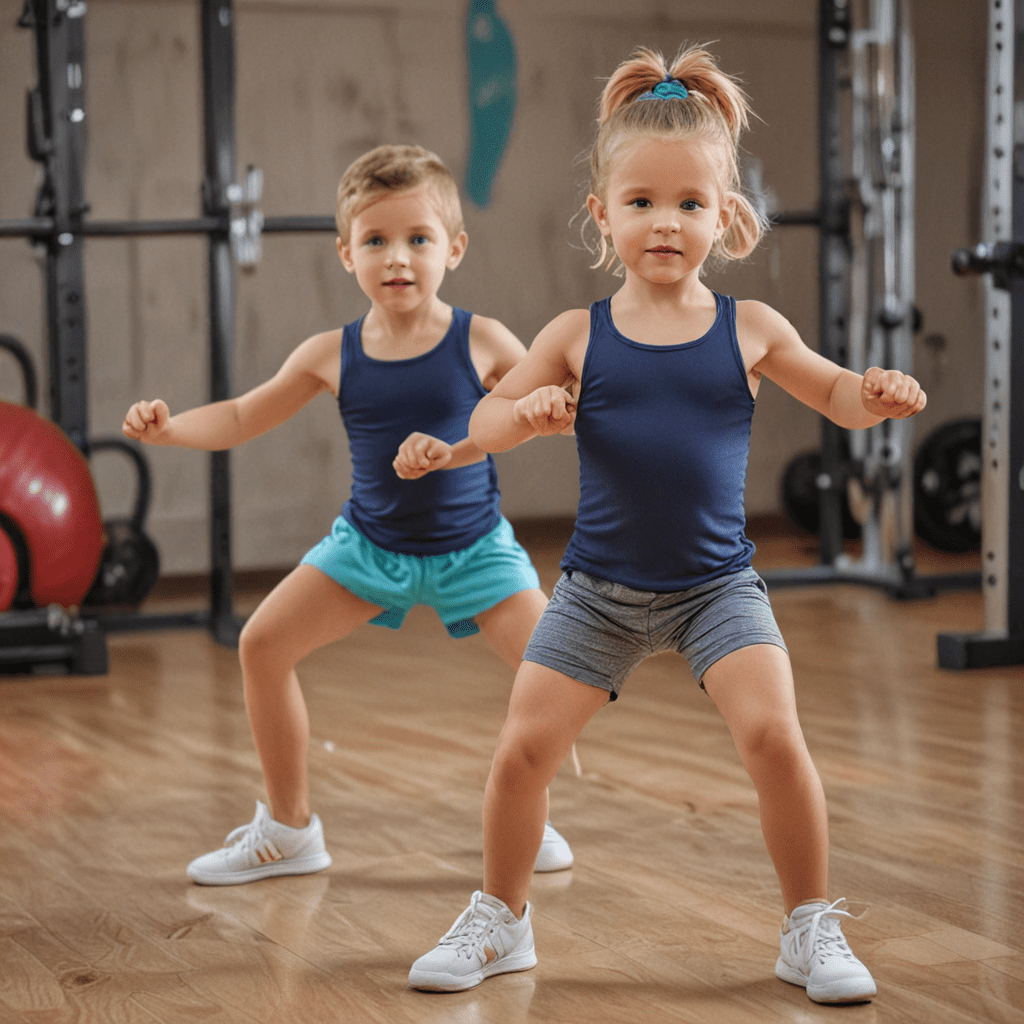
Introduction: The Critical Role of Mind-Body Practices for Children's Well-being
Maintaining children's optimal health and fitness requires a comprehensive approach that addresses not only their physical well-being but also their mental and emotional development. This holistic approach incorporates mind-body practices that promote a strong connection between the mind and body, leading to numerous benefits for children. By introducing mind-body practices into their fitness routines, children can cultivate self-awareness, enhance their resilience, and foster overall well-being.
Benefits of Mind-Body Practices: A Profound Impact on Physical, Mental, and Emotional Health
Integrating mind-body practices into children's fitness routines yields a wealth of physical, mental, and emotional benefits. These practices, such as yoga, Tai-Chi, and Pilates, improve physical flexibility and balance, enhance muscular strength, and increase energy levels. Moreover, they cultivate mental focus and concentration, reducing stress, anxiety, and emotional reactivity. Mind-body practices contribute to emotional regulation by teaching children techniques to self-soothe, manage their emotions, and develop a positive body image.
Types of Mind-Body Practices Suitable for Children: Exploring Yoga, Tai-Chi, and Pilates
When selecting mind-body practices for children, it is essential to consider their developmental needs and interests. Yoga is an excellent option, offering a range of postures that improve flexibility, strength, and coordination. It also incorporates breathing techniques, promoting relaxation and self-regulation. Tai-Chi is another beneficial choice that involves gentle movements and flowing sequences, enhancing balance and improving overall body awareness. Pilates focuses on core strengthening and posture, fostering alignment and flexibility while reducing the risk of injury. These practices can be modified to suit different ages and abilities, ensuring that all children can enjoy their benefits.
Integrating Mind-Body Practices into Fitness Routines: Age-Appropriate Modifications for Optimal Outcomes
To effectively integrate mind-body practices into children's fitness routines, consider age-appropriate modifications and adaptations. For younger children, shorter practice sessions of 15-20 minutes with playful and imaginative elements are recommended. As children grow older, gradually increase the duration and intensity of the sessions. Ensure a gradual progression and variety in activities to maintain interest and engagement. Collaboration between parents, teachers, and health professionals is crucial for tailoring mind-body practices to each child's specific needs and developmental stage.
Training and Qualifications of Instructors for Children's Mind-Body Programs: Ensuring Expertise and Safety
Instructors play a critical role in delivering effective mind-body practices for children. They should possess specialized training and qualifications to ensure safe and age-appropriate instruction. Look for instructors certified by reputable organizations, such as the Yoga Alliance or the Pilates Method Alliance. These certifications demonstrate proficiency in teaching techniques, safety protocols, and child development principles. Qualified instructors can tailor practices to meet the unique needs of each child, creating a positive and supportive learning environment.
Collaboration between Parents, Teachers, and Health Professionals: A Team Approach for Optimal Outcomes
Collaboration among parents, teachers, and health professionals is essential for the successful implementation of mind-body practices in children's fitness routines. Parents can provide support and encouragement at home, reinforcing the practices taught in class. Teachers can incorporate mind-body elements into their physical education curriculum, extending the benefits to a wider group of children. Health professionals, such as pediatricians and physical therapists, can offer guidance on the appropriateness of specific practices for children with special needs or health conditions. This team approach ensures a comprehensive and cohesive approach to children's fitness and well-being.
Evaluation and Assessment of Mind-Body Practice Programs for Children: Measuring Impact and Progress
Evaluating the effectiveness of mind-body practice programs for children is crucial to ensure they are meeting their intended goals. Assessments can include surveys, questionnaires, and observations that measure changes in physical fitness, mental focus, emotional regulation, and overall well-being. Regular assessments allow instructors and parents to track progress, make adjustments, and provide targeted support to each child. By gathering data on outcomes, programs can be refined and improved to maximize their impact on children's health and development.
Challenges and Facilitators in Implementing Mind-Body Practices in Youth: Overcoming Barriers and Embracing Opportunities
Implementing mind-body practices in youth fitness programs may encounter challenges, such as resistance to change, lack of resources, and limited time constraints. However, these challenges can be overcome by building awareness, providing accessible opportunities, and creating a supportive environment. Facilitators for successful implementation include parental support, collaboration with schools and community centers, and funding for instructor training and program development. By addressing challenges and leveraging facilitators, we can create a conducive environment for children to embrace the benefits of mind-body practices.
Conclusion: The Integral Role of Mind-Body Connection in Children's Fitness and Well-being
Incorporating mind-body practices into children's fitness routines is a transformative approach that fosters their physical, mental, and emotional well-being. Through practices such as yoga, Tai-Chi, and Pilates, children develop self-awareness, resilience, and a strong mind-body connection. Qualified instructors, collaboration among parents, teachers, and health professionals, and ongoing evaluation ensure the effectiveness of these programs. Overcoming challenges and embracing facilitators creates an environment where children can thrive and reach their full potential. By integrating mind-body practices into their fitness routines, we empower children to lead healthier, happier, and more fulfilling lives.
FAQs: Addressing Common Questions about Mind-Body Practices for Children
Q: Are mind-body practices safe for children?
A: Yes, when taught by qualified instructors and tailored to their developmental stage.
Q: How often should children practice mind-body techniques?
A: Regular practice is recommended, with shorter sessions for younger children and gradually increasing duration and intensity as they grow older.
Q: What are the benefits of mind-body practices for children with special needs?
A: Mind-body practices can improve physical function, emotional regulation, and social skills in children with special needs.
Q: How can parents support their children's involvement in mind-body practices?
A: Parents can provide encouragement, practice with their children, and reinforce the benefits of the practices at home.

